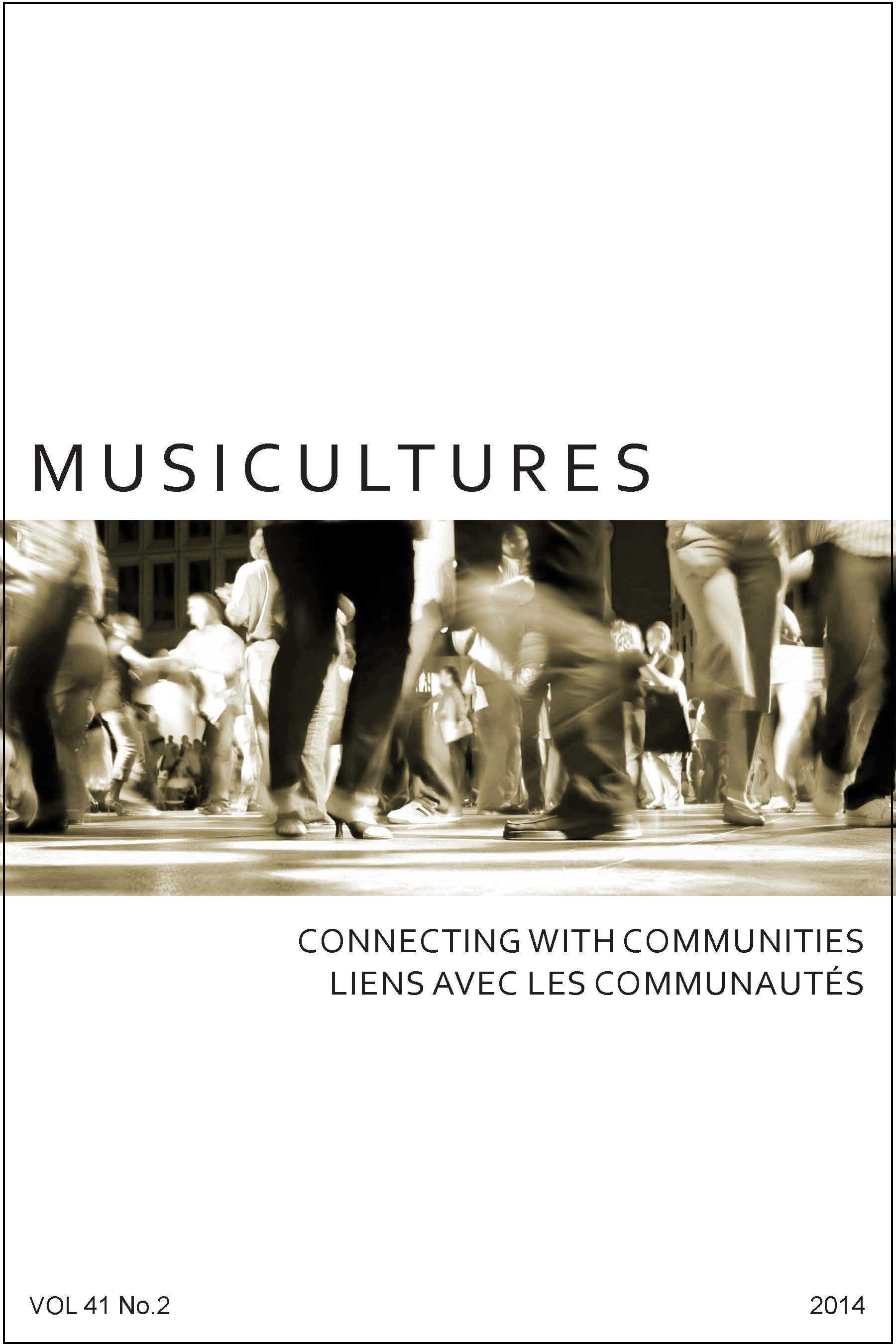Abstract
This text argues that by watching people who listen to music, we can understand the unfolding of political events in the popular imagination in the Democratic Republic of Congo. Because listening to music in this context is very often a social activity, music fans make associations between their individual experiences and the political history of their country, at times articulating a new political consciousness as something emergent. After presenting three examples of this political “prise de conscience” during the Mobutu regime—the beginning of opposition, the period of structural adjustment and the fall of the regime—I analyze the relationship between political consciousness and popular music via a discussion of interpersonal listening: listening together, thinking out loud.- The author retains copyright over the work.
- The author grants the journal owner (The Canadian Society for Traditional Music / La Société canadienne pour les traditions musicales) an exclusive license to publish the work.
- The author may post a pre-print or post-print version of the work (see definitions below) on a personal website for up to twelve months after the work is published in MUSICultures. After twelve months, the pre-print version must be replaced with the published version.
- The author may deposit the published PDF of the work in a non-commercial online repository twelve months after the work is published in MUSICultures, or any time thereafter.
- Any such deposit must include a link to the work on the MUSICultures website, e.g., https://journals.lib.unb.ca/index.php/MC/article/view/19996
A pre-print is a work-in-progress—a contribution not yet accepted, or perhaps even submitted, to MUSICultures.
A post-print is the version of a contribution after peer review and acceptance by MUSICultures, with revisions completed.
The published version is the PDF file of a contribution as it appears in MUSICultures.
Please note that academia.edu and ResearchGate.com are both for-profit repositories; authors may not deposit the published PDF of the work in these repositories until after the journal’s embargo period.
For permission to reprint or translate material from MUSICultures, please contact Heather Sparling, General Editor of MUSICultures (heather_sparling@cbu.ca).

